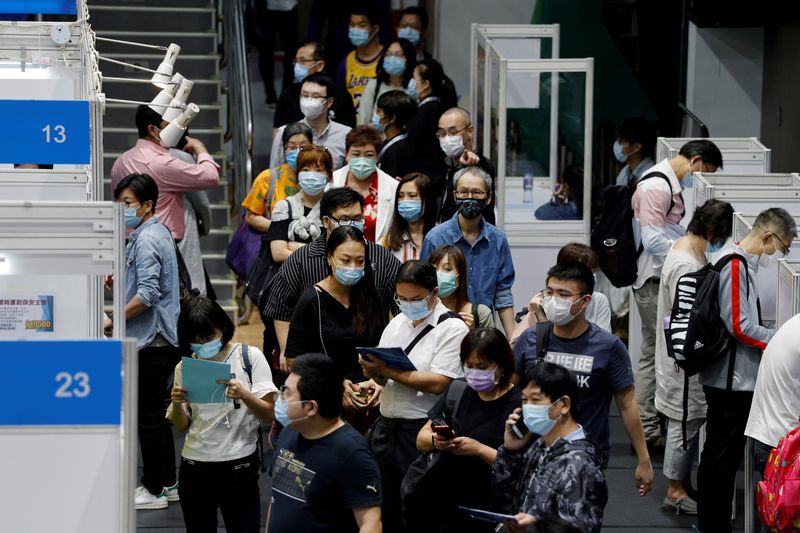BEIJING (Reuters) - A Chinese index of employment confidence dived in the second quarter to its lowest since the global financial crisis of 2008 and 2009, a central bank survey showed on Wednesday, after tough COVID-19 curbs took a toll of the economy from April to June.
Nearly 46% of Chinese households think the employment situation remains "grim" in the second quarter, urban depositors surveyed by the People's Bank of China (PBOC) said.
Another indicator of future expectation of employment also dropped to the worst level since 2009.
With the survey-based jobless rate in 31 big cities rising to a record of 6.9% in May, Premier Li Keqiang said China would strive to return the economy to a normal track and cut the jobless rate as soon as possible, state media said on Tuesday.
A cohort of graduates larger than the entire population of Portugal is about to enter one of China's worst job markets in decades, at a time when youth unemployment stands at a record of 18.4%.
Faced with economic uncertainties, more than 58.3% of the households are inclined to save rather than spend or invest in the second quarter, up from 42.4% in the first quarter, the PBOC survey showed.
Despite signs of economic recovery in May from the previous month's slump, with the commercial hub of Shanghai under full lockdown, consumption stayed weak, underlining the challenge of attaining positive GDP growth.
A separate survey of bankers published by the bank showed weaker loan demand in the current quarter.

An index of loan demand dropped to 56.6%, the lowest since the third quarter of 2016, with declines in the manufacturing, infrastructure, retail sales and property sectors.
As COVID-19 lockdowns shut businesses, an index of entrepreneurs' confidence in the economy dropped by 9.2 percentage points for the second quarter from the previous quarter, and was down 15.5 percentage points on the year.